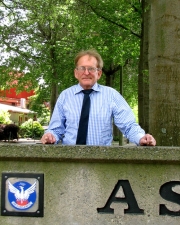Search

 One year shy of a half century of teaching, Mark Gleason is signing off from Ashburton College’s payroll and heading for retirement. Photo supplied.When Mark Gleason arrived in Ashburton back in 1971 he intended to stay one year and then head back to Christchurch; 49 years later he’s signing off from his only job in the education sector, teaching students at Ashburton College.
One year shy of a half century of teaching, Mark Gleason is signing off from Ashburton College’s payroll and heading for retirement. Photo supplied.When Mark Gleason arrived in Ashburton back in 1971 he intended to stay one year and then head back to Christchurch; 49 years later he’s signing off from his only job in the education sector, teaching students at Ashburton College.
American-raised Gleason arrived in New Zealand as an 18-year-old.
His parents decided providing the tertiary education they wanted for their five children in New York was too expensive, but New Zealand offered good, affordable opportunities.
They travelled the length of the country, looking for the right place to settle, found it in Christchurch and Gleason enrolled at Canterbury University.
A masters degree and teacher training later, he graduated and began searching for his first job.
“In those days the government subsidised teacher training so there were lots of good quality candidates, you couldn’t be too selective.
“Jobs were tight in Christchurch, but I decided Ashburton was pretty close,” he said.
He won a job teaching English and history and decided what he perceived as a small country town would do for his first year in the classroom.
“But once I was here I found it had most of the things I wanted.
“I stayed because it was close enough to Christchurch and my family. It had all the Christchurch facilities and house prices were a lot cheaper.”
It was the lure of home ownership that sold wife Lesley, a speech therapist, on the move, he said.
“We did it in Ashburton within a year.
“We were making $4000 a year and we bought two sections and a house for $6000 so it was very easy for us to get traction.”
The Gleasons were in Ashburton to stay and raise their four children.
He might be something of a rarity in the teaching world, remaining at one school for all of his career, but Gleason says he has no complaints about life at the college.
“I found the facilities, even though people complain about them to be quite adequate and I’ve enjoyed the leadership of the principals I’ve had.”
As he arrived the transition from two schools and two sites was under way, with construction of the new college close to completion.
That meant a year of teaching at two and sometimes three sites.
“It was quite taxing going from site to site by car.
“At least we could see the end of it, but you began every period on the back foot as you were often late and often had to leave a class early.”
The vehicles used were off-casts of the Ministry of Education and were not required to have a warrant of fitness.
That meant most were far from reliable.
With the third generation of some families starting to arrive at college, Gleason said it was a clear signal it was time to retire.
Looking back over 49 years in the classroom, he said students today were significantly different to those he taught back in 1971.
“They’re much more sophisticated and worldly wise.
“That makes it easier and harder. You don’t have to explain so much, but with modern technology it’s a bit frustrating at times because they’re hard to supervise when you have a room full of computers.”
While technology is a useful tool, Gleason said it does have negatives – students who are constantly on their phones and don’t communicate verbally as much as they did in the past.
“And it’s very uneven now with some who have the absolutely latest and others who do not.”
As he prepares to leave the college, Gleason said he will miss conversations with his colleagues and the exchange of ideas with his Year 13 students.
“They’re very positive and knowledgeable and discussions with them could be with university students.”
College staff had always been supportive and you always felt part of a team, he said.
Highlights over the years have come through coaching college sports teams – basketball, softball and athletics.
“Some of the most rewarding relationships have been with pupils. It’s out of the classroom and some of them – boys in particular – didn’t shine in the classroom, but they did at sport.”
In the early 1980s Gleason was part of a curriculum change team that shook up the status quo and reshaped how schools were run.
New subjects were introduced and the junior curriculum became more standardised.
Staffing economies were also part of the change.
He’s reserving his judgement on the modern learning environment, saying he experienced this in the college’s early days as T block was designed for team teaching and he can see the drawbacks.
“It can be done, but it can also be just chaos. It has to be very well managed.”
And he’s not a fan of a more relaxed attitude to spelling, grammar and punctuation.
“It’s attitudinal, but these things do matter.”
Given the shortage of teachers today, Gleason believes a return to the old system of paying for teacher training and then bonding teachers for two years to a school would go a long way towards encouraging more people into the sector.
The other issue that would improve teacher numbers would be improving pay rates – they’ve never been flash, he said.
He remembers receiving his first pay cheque – the hourly rate was less than half what he earned working in the Christchurch glassworks while he was studying.
“But I’ve got no regrets, it’s been a very good and very rewarding career.”
He doesn’t plan on being a retired teacher who becomes a long-term reliever as retirement will eventually bring a move to Christchurch for the couple.
By Sue Newman © The Ashburton Guardian - 1 January 2020


